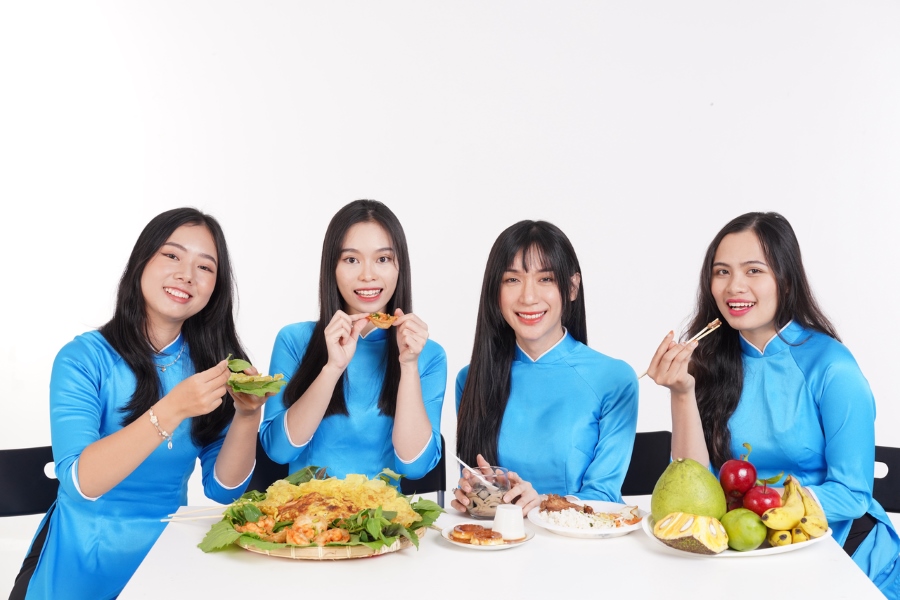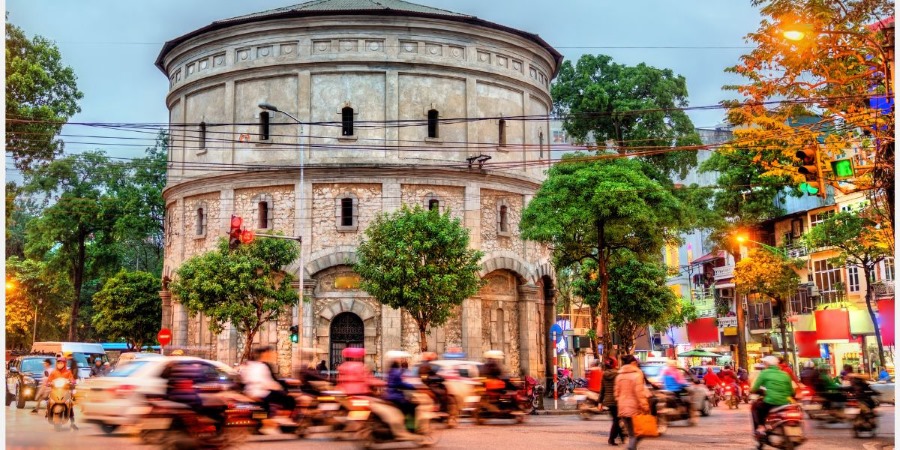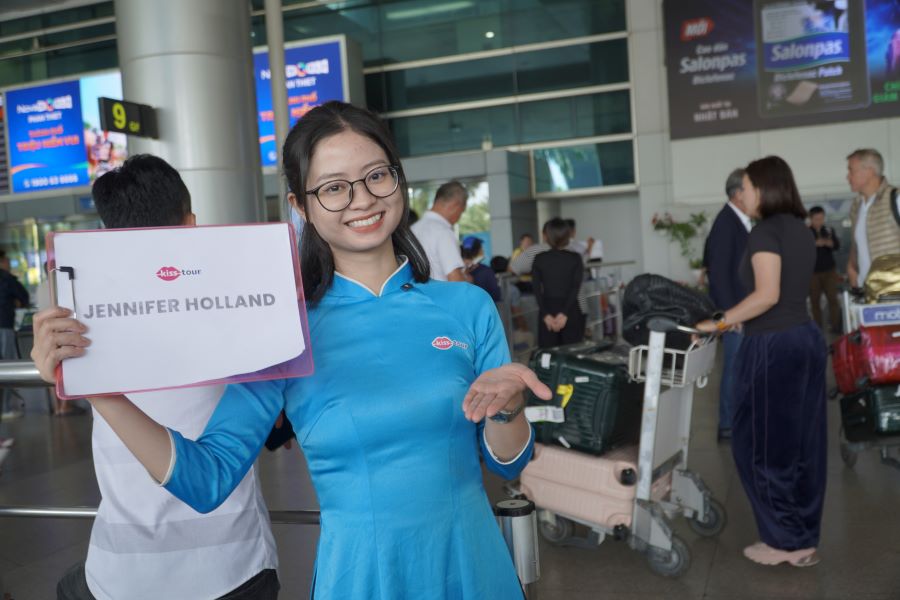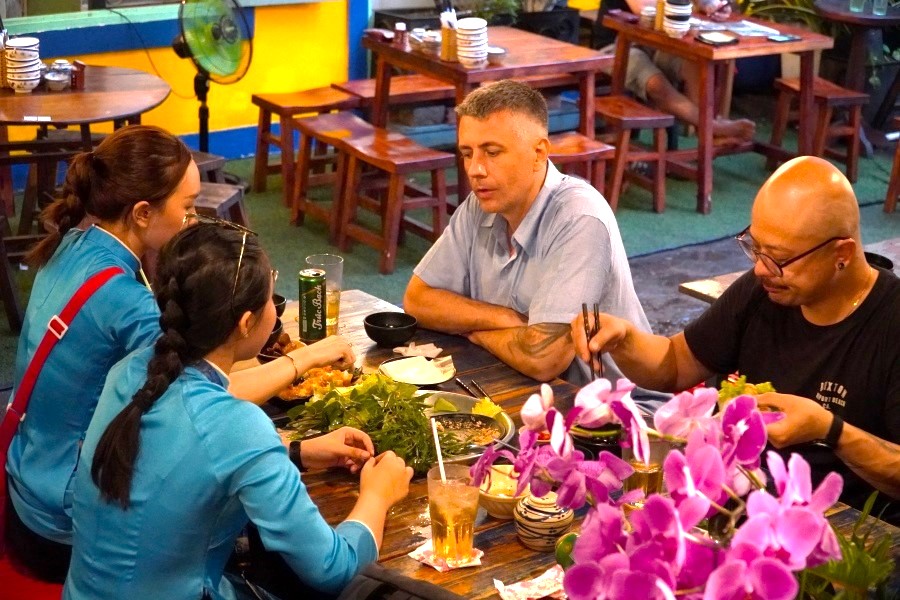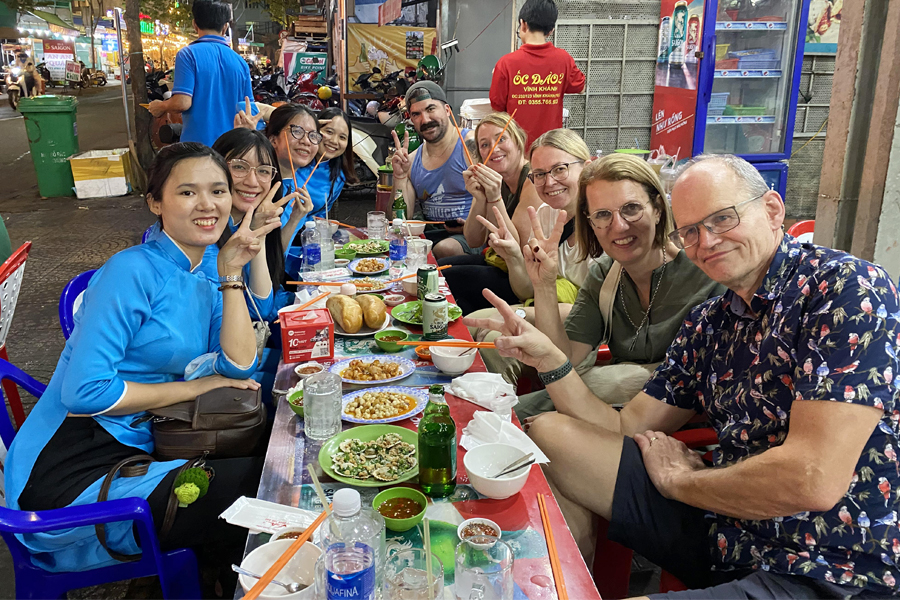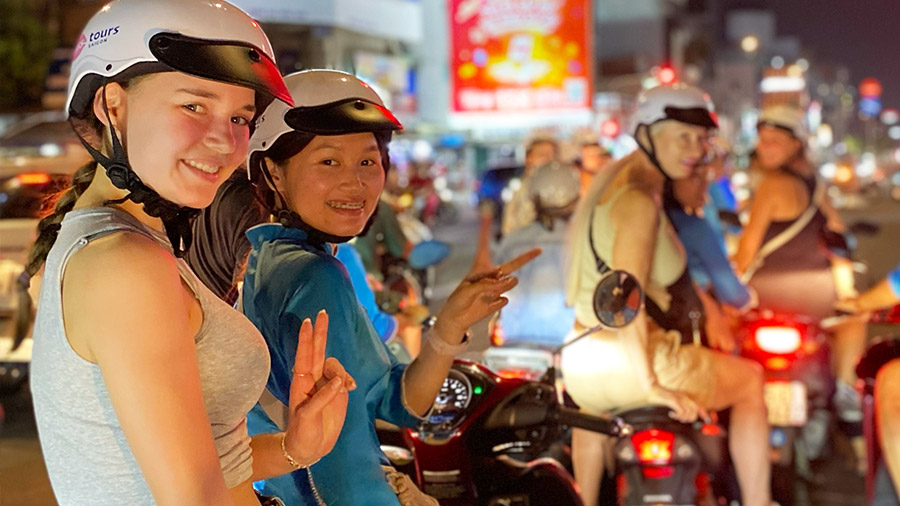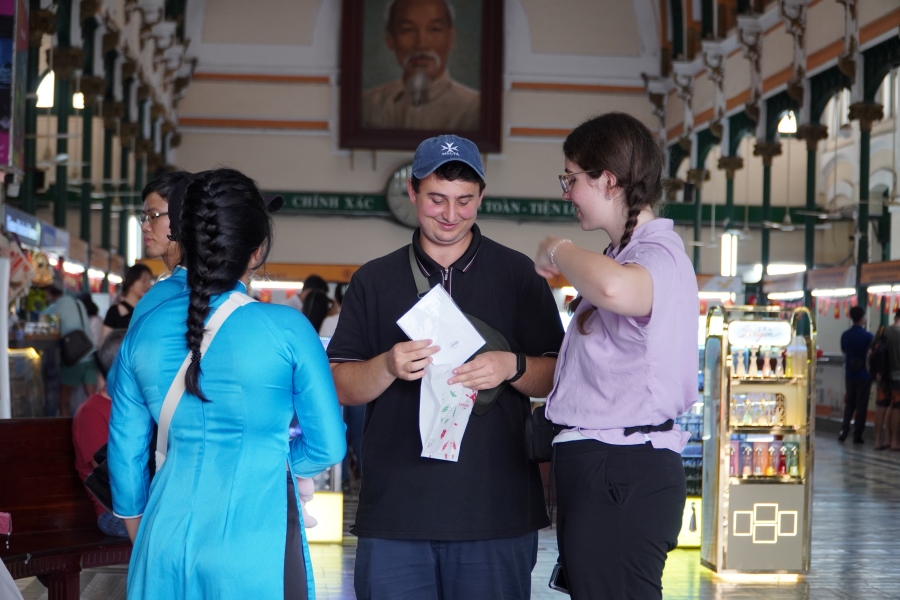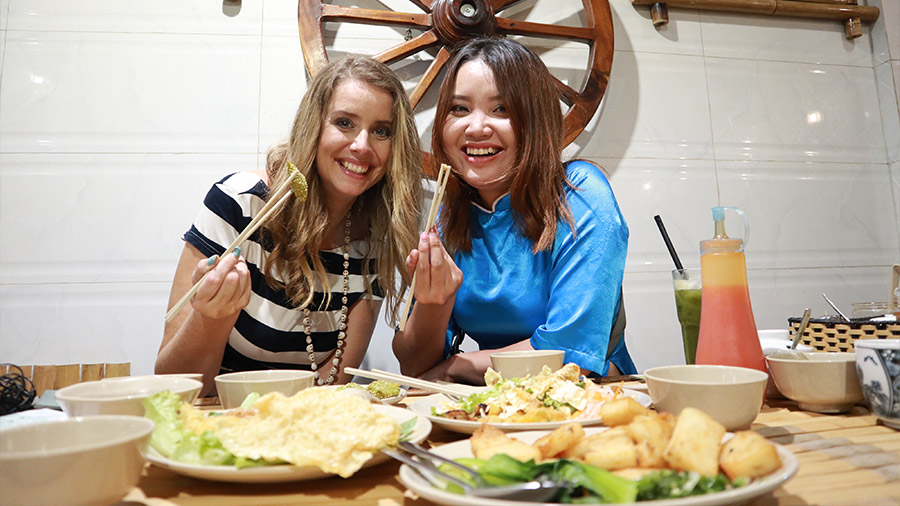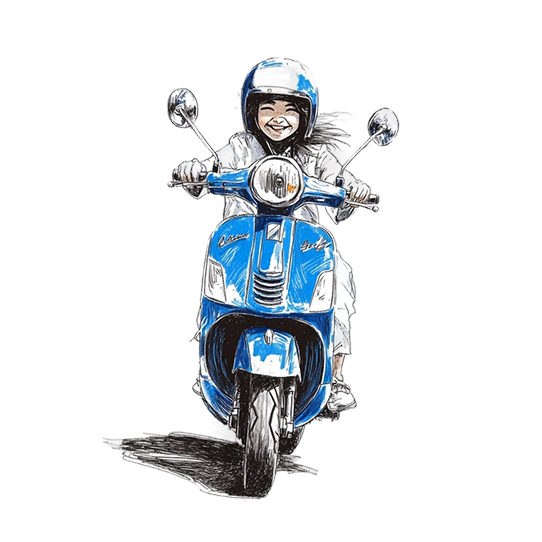Exploring Vietnamese culture can be a thrilling adventure because it is so different from Western cultures. From social conventions to communication techniques, there are nuances that might catch you off guard. I’ll help guide you through the complexities of Vietnamese culture, which will help you to be better prepared for any culture shocks, and ensure that you have pleasant and respectful interactions with the locals. Here are things you should know about Vietnamese culture:
Differences Between Vietnamese and Western Cultures
Vietnamese and Western cultures are as different as they are intriguing, with each having its own set of values, practices, and traditions that define the lives of its respective populations. While there might be thousands of contrasts between the two cultures, here are a few key things that you should know about Vietnamese culture.
Family and Respect for Elders
Family is essential to Vietnamese society, and the notion of filial piety (deep respect for parents and ancestors) is highly valued. This cultural value has a major impact on social relationships and daily life in Vietnam. For example, in Vietnamese society, seniors are honored and hold positions of power and knowledge. They are well recognized and are usually turned upon for guidance. Elders are addressed using honorific titles such as “ông” for men and “bà” for women, followed by their given name, which help display the difference and respect shown to elderly people.
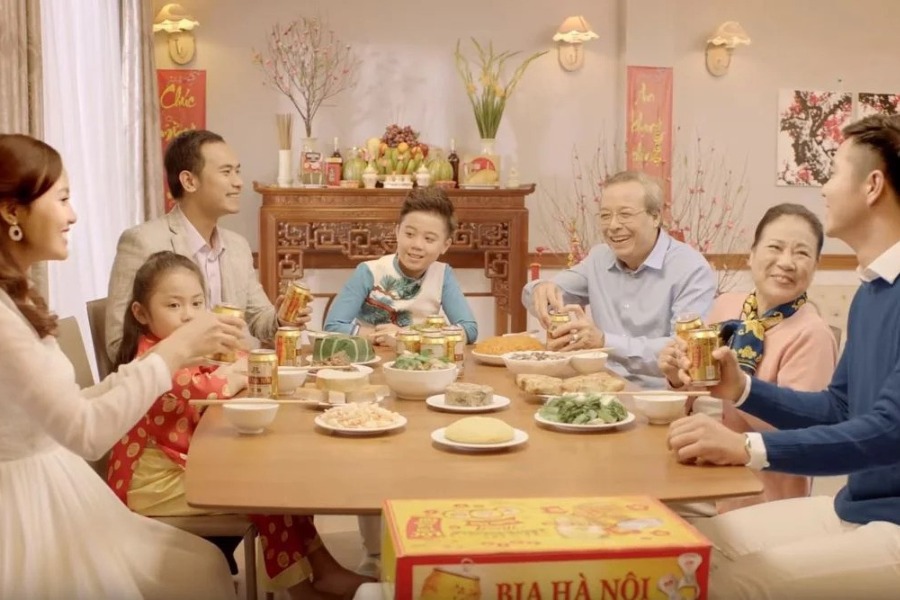
When interacting with Vietnamese elders, it is important for tourists to show respect and observe certain etiquette. Here is an example:
When a senior enters the room, it is common to stand as a sign of respect. Avoid interrupting them while they are speaking, and listen carefully to what they have to say. This demonstrates respect for their wisdom and helps to preserve harmonious interactions between people.
Another aspect of filial piety is the practice of ancestor worship. Vietnamese households frequently have an ancestral altar in their houses, where they offer food, incense, and prayers to honor and remember their ancestors. This tradition indicates a strong connection to family roots as well as the concept that ancestors will continue to be present and influential in the lives of their descendants.
Indirect Communication and “Saving Face”
Vietnamese culture emphasizes the significance of maintaining harmony and social reputation, which frequently results in indirect displays of disagreement and a tendency to avoid using the word “no” in particular situations. Because direct refusals or stating “no” bluntly might be considered unfriendly or aggressive, many individuals may use indirect language to communicate disagreement or hesitation.
For example, instead of saying “no,” they can say “it might be difficult” or “I will try my best” to convey a negative reaction without directly rejecting a request, which then permits both parties to retain harmony while also “saving face”.
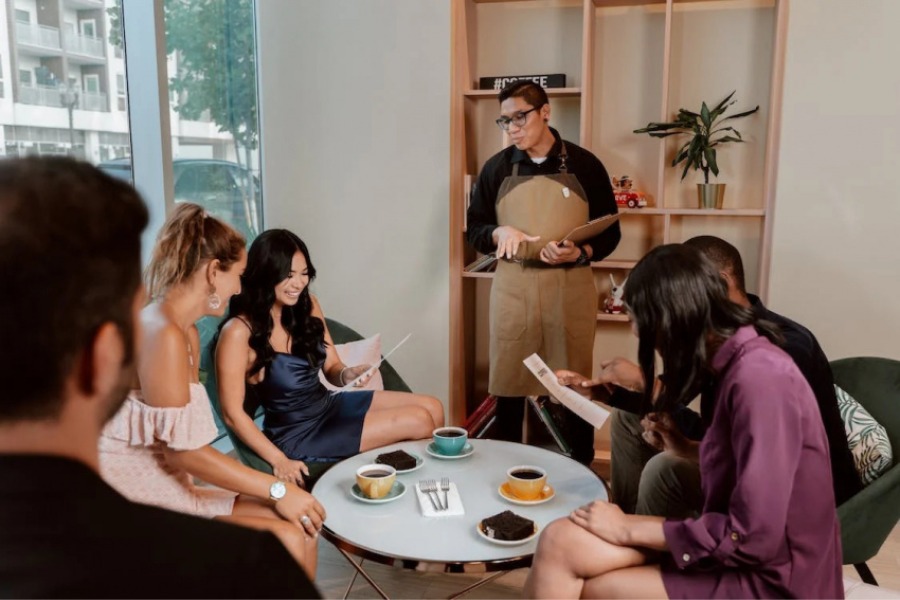
My advice to tourists here would be to try to avoid public confrontations or conflicts with locals. Instead, you can communicate your requests and disappointments in a polite and friendly manner rather than an aggressive one. Using words like “Could you please consider…” or “I would appreciate your assistance in…” allows you to express your worries without explicitly questioning or criticizing people.
For instance, when haggling in marketplaces or negotiating rates, remember to handle the situation calmly, politely, and respectfully. Rather than bargaining angrily or demanding major discounts, a better strategy is to negotiate nicely with a smile, demonstrate enthusiasm and appreciation for the item, and maintain a fair and reasonable mindset.
Relationship Focus
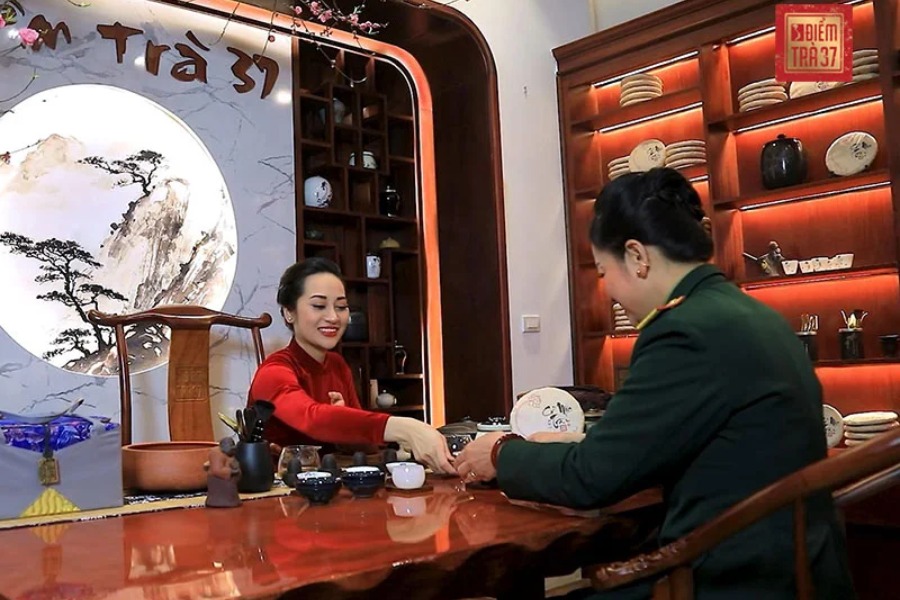
Vietnamese culture emphasizes the significance of connecting and establishing trust. Small talk is regarded as essential since it helps people to create connections, learn about each other’s backgrounds, and build trust from there. Traditional Vietnamese methods include the practice of “trà đạo”, a tea ceremony where people serve and sip tea while conversing. This concept can be expanded to include coffee conversations, particularly among the younger generations.
When conducting business or negotiating in Vietnam, travelers should have small conversations and be patient. Engaging in informal chats, inquiring about the other person’s well-being, family, or interests, and showing genuine smiles, active listening, and respect for personal details can help to develop a pleasant relationship. Because in the end, the goal is not just to achieve business objectives, but also to establish long-term partnerships founded on trust and mutual understanding.
Therefore, to thrive in business interactions, travelers should have small conversations, keep a warm and calm attitude, and be willing to create relationships beyond the transactional aspect of the meeting.
Adventurous Eating
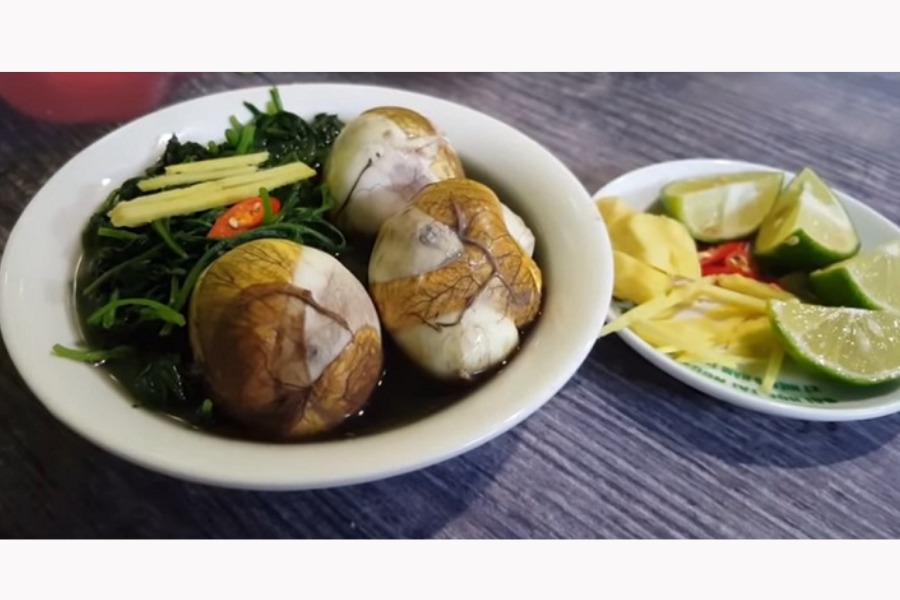
Vietnamese cuisine is known for its various tastes and distinctive ingredients, which can appear odd and a little scary to many Western tourists. While it provides a diverse selection of culinary delicacies that are made from normal ingredients, it also has fascinating and challenging food for adventurous eaters.
For example, “trứng vịt lộn” (balut) and “tiết canh” (raw blood pudding). Trứng vịt lộn is a partly grown duck egg that is traditionally cooked and eaten in its shell, and tiết canh is a meal cooked with raw animal blood that may include herbs, pork, and fish sauce. Both trứng vịt lộn and tiết canh have distinct textures and flavors, making them acquired tastes. They can be extremely yucky for folks who are not used to ingesting such stuff. While some travelers may opt to embrace the daring attitude and try these delicacies, it’s important to note that it’s totally OK to respectfully reject if anything feels too risky or outside your comfort zone.
In the end, remember that food is an integral part of Vietnamese culture, and exploring the local cuisine can be a fun journey. However, personal preferences and comfort levels vary, and it is absolutely appropriate to respectfully decline certain meals. The goal is to embrace new culinary experiences with an open mind, show respect for the local culture, and push yourself beyond your culinary comfort zone, while respecting your own boundaries.
Potential Culture Shock Experiences
Traveling in Vietnam can be an exciting and eye-opening experience, but it’s important to be mentally and physically prepared for some of these potential culture shocks, which can be extreme for first-time travelers to Vietnam.
Motorbikes on Every Corner & Chaotic Traffic
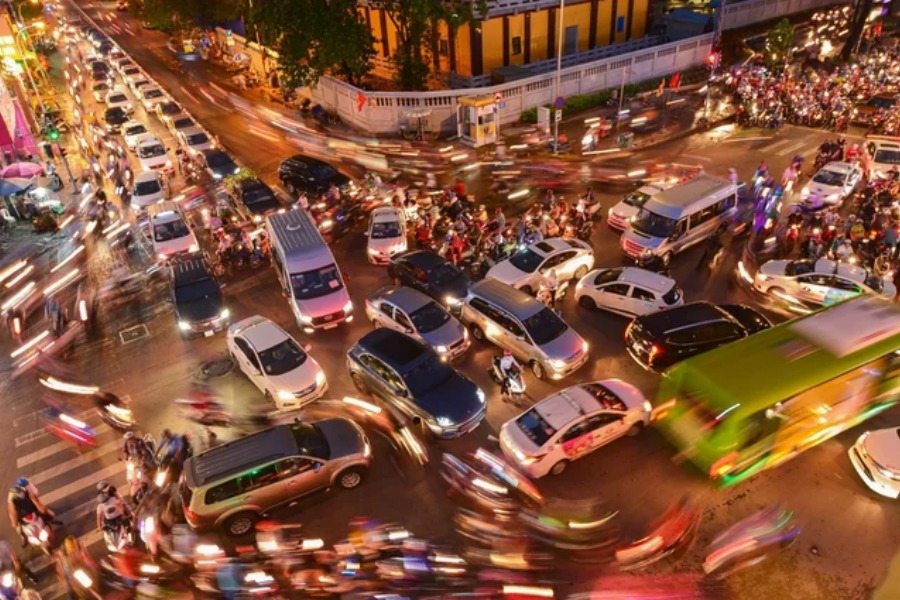
In my experience, when I ask first-time tourists what surprised them the most when they arrived in Vietnam, the answer is always the number of motorcycles. I chuckle every time, because Vietnam is one of the countries with the largest motorcycle usage, so it’s not surprising that they’re astonished. Furthermore, several of them expressed their admiration for how the locals ride motorcycles here with exceptional maneuvering skills, going with the flow and not hitting each other. I like to describe the chaotic traffic as “organized chaos”.
Motorbikes With More Than Two People
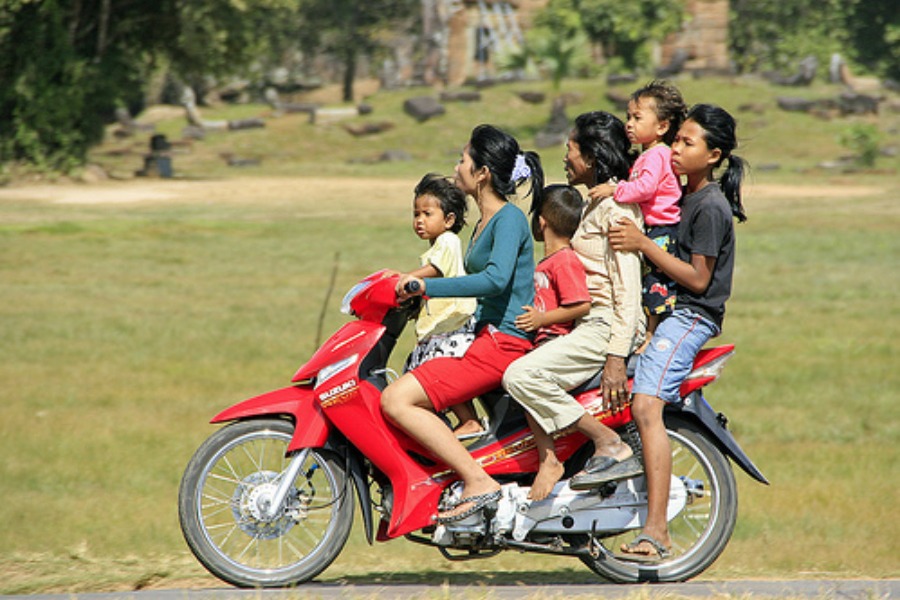
Legally, one motorbike can only carry two people. However, in many regions of the country, it is usual to see families or groups of friends riding on the same motorcycle. This scene may surprise tourists who are accustomed to strict passenger limitations and safety measures. Seeing entire families, including parents, children, and occasionally even newborns, squeezed into a single motorcycle may appear dangerous or uncomfortable, but I guarantee these drivers are incredibly experienced, so they know what works best for them.
Street Vendors and Shops Are Part of the Culture
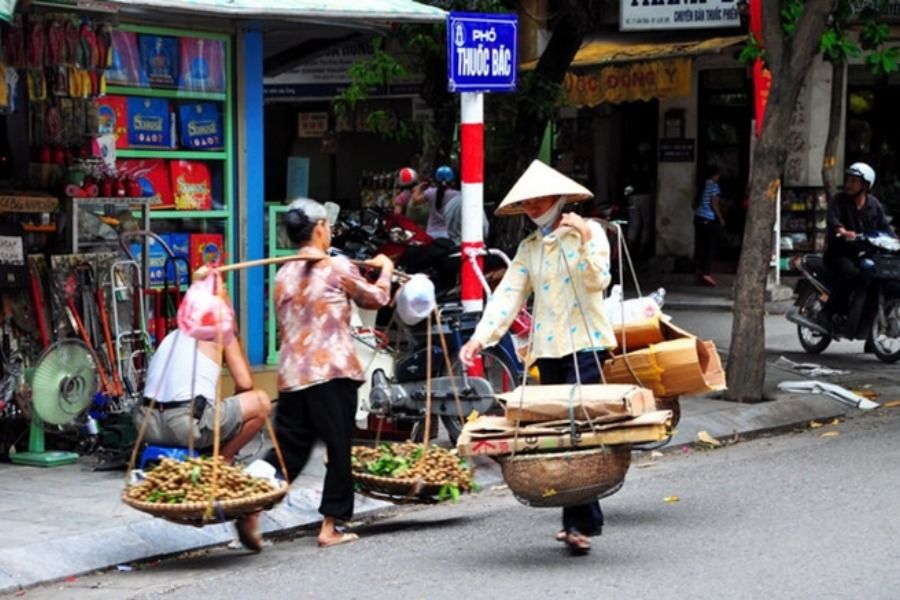
Unlike typical retail settings, Vietnamese culture values the dynamic street market atmosphere. Sidewalks are filled with merchants selling a variety of goods, and the air is infused with the smell of street cuisine. Embracing the vibrant environment and supporting local sellers may result in one-of-a-kind experiences and a better knowledge of Vietnamese culture. However, to make sure you don’t encounter any stomach problems, stick with street vendors that are crowded!
Siesta Time
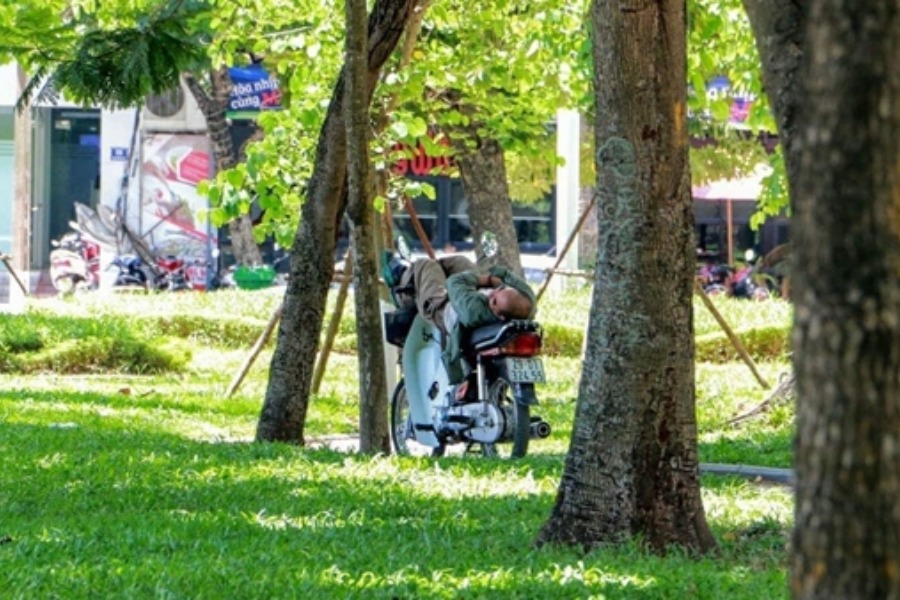
Siesta time is a period of a day when businesses and activities slow down, enabling some individuals to rest and recharge. Some people find it difficult to adjust to siesta time in Vietnam, since it may differ from cultures in which businesses run continually throughout the day. However, Vietnamese people take their siesta time seriously. Siesta time usually occurs during the hottest point of the day, so some people use the time to hide from the heat by snoozing in street hammocks while some people drink tea or coffee, read a book as a way to recharge and get back to work more effectively.
Bargaining Is a MUST
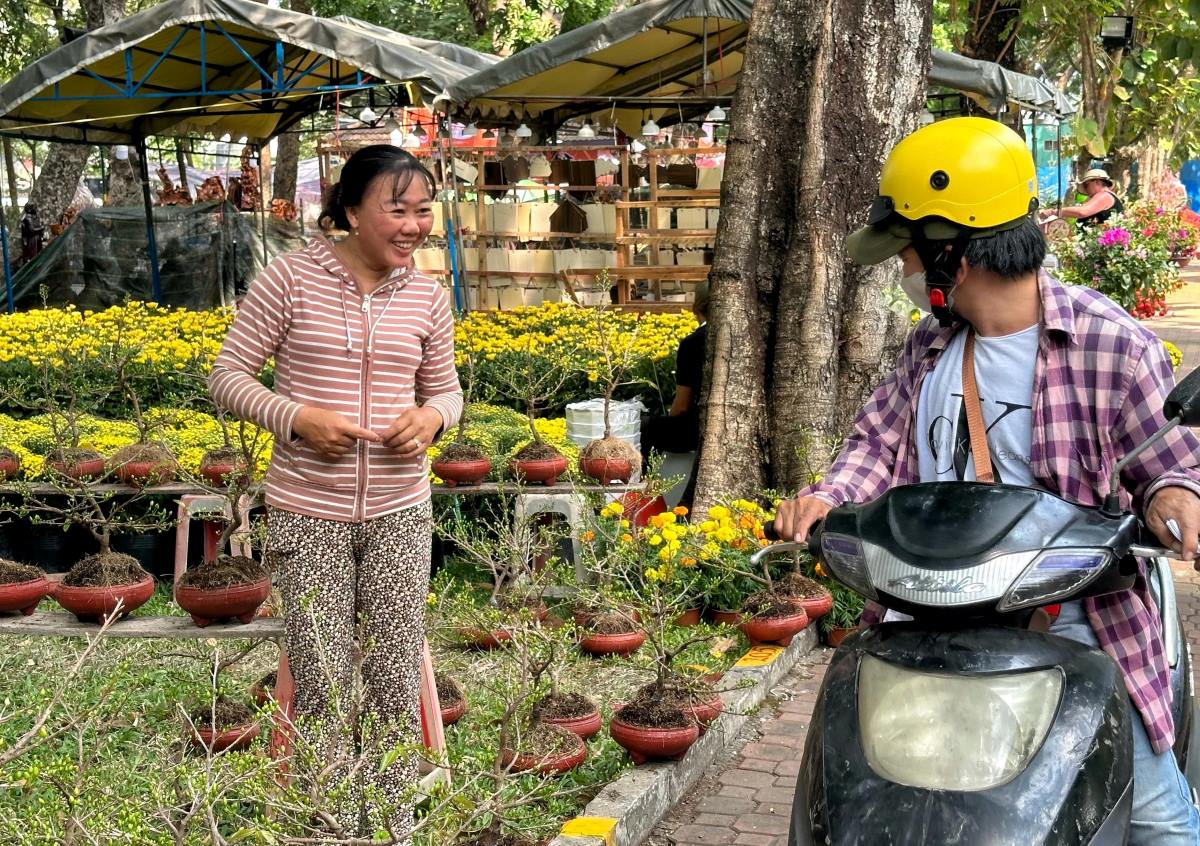
Unlike fixed pricing systems, bargaining is a MUST when buying goods at Vietnamese marketplaces, street stalls, or smaller, independently owned stores. Negotiation and haggling is expected and even encouraged, so don’t be afraid to ask for a half-off price. It can be a fascinating experience to engage with locals, learn about their culture, and even score some excellent prices. However, remember to establish a balance and consider fair pricing, because in the end, they also need to earn a living.
Karaoke in Vietnam – Everyone Can Be Lady Gaga!

Fun fact: Vietnamese people are absolutely passionate about karaoke!
Everywhere you go, music follows… accompanied by locals’ voices! If you are unfamiliar with or unaccustomed to karaoke culture, you might be surprised by the excitement and intensity with which people engage in this leisure activity. Vietnamese people frequently come together with friends, relatives, or coworkers to sing their favorite songs – regardless of their vocal ability. Vietnam’s Karaoke culture can be noisy, vibrant, and full of laughter, so don’t be scared to join in if you come across karaoke while visiting Vietnam. Remember to have fun and sing your heart out!
Passionate Soccer Fans
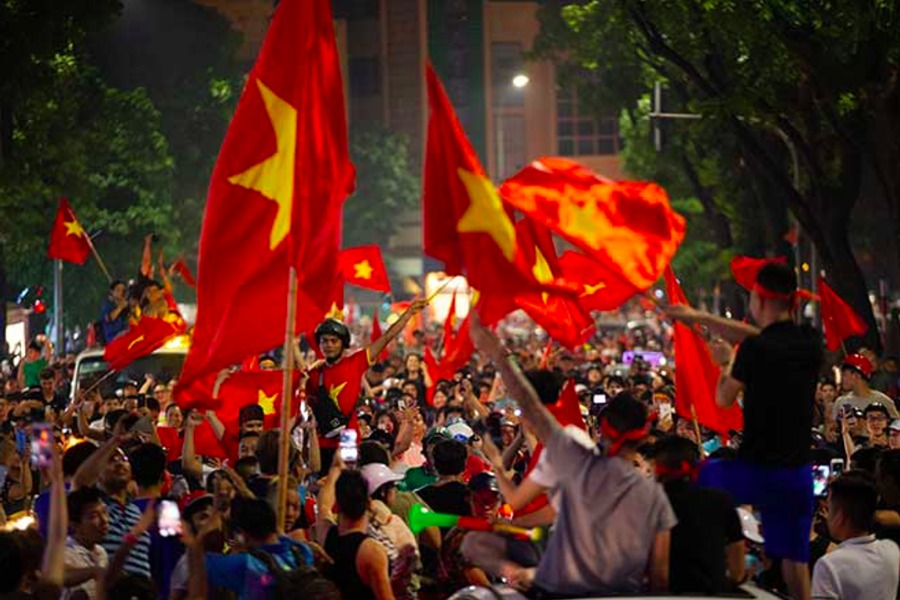
Soccer holds a special place in the hearts of many Vietnamese people, and supporters’ excitement and commitment can get rather intense. During soccer season, you’ll witness locals drinking, eating, and gathering to watch soccer. For those who are not used to such ardent support, the degree of emotion and sheer volume of the audience might be overwhelming and unlike anything you’ve seen previously. Especially when the Vietnamese national team enters a significant league, locals will go crazy with “đi bão” – a phenomenon that happens when locals drive around the city carrying the Vietnamese flag and celebrating in the streets, which usually causes traffic jams.
Dirt Cheap Fresh Beer
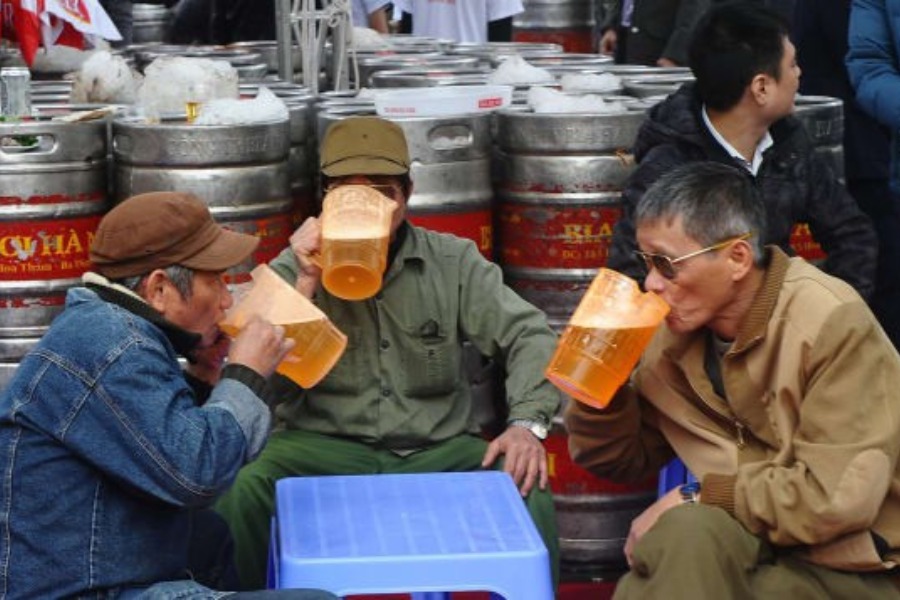
When visiting Vietnam, another potential culture shock is the availability and affordability of fresh beer – or “bia hơi”. It is a type of Vietnamese draft beer that is often made and supplied to pubs and restaurants daily. It costs much less than other varieties of beer or alcoholic drinks, both in Vietnam and across many other countries. This is due to its short shelf life as it is produced daily, and matured for just a short amount of time. Shocking, right? But in Vietnam, fresh beer is so common that you can frequently find it being sold by small street vendors, or shops with plastic chairs and tables all laid out on the sidewalk. So if you are a beer lover, this is definitely a paradise for you.
Living With Parents
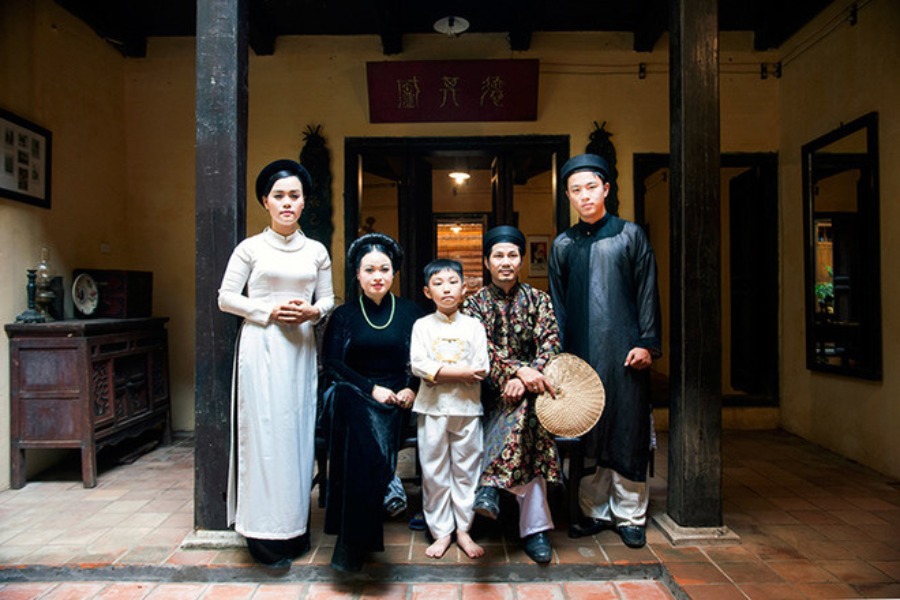
Even as adults, the Vietnamese cultural tradition of living with parents might come as a culture shock to some people. Individuals who are unfamiliar with this cultural practice may need time to understand why it is practiced. However, in Vietnamese society, filial piety – respect for one’s parents and elders – is highly valued. Living with one’s parents is viewed as a means to fulfill this duty while also maintaining strong family relationships. It’s also useful in terms of sharing obligations and providing support in everyday life.
Sleeper
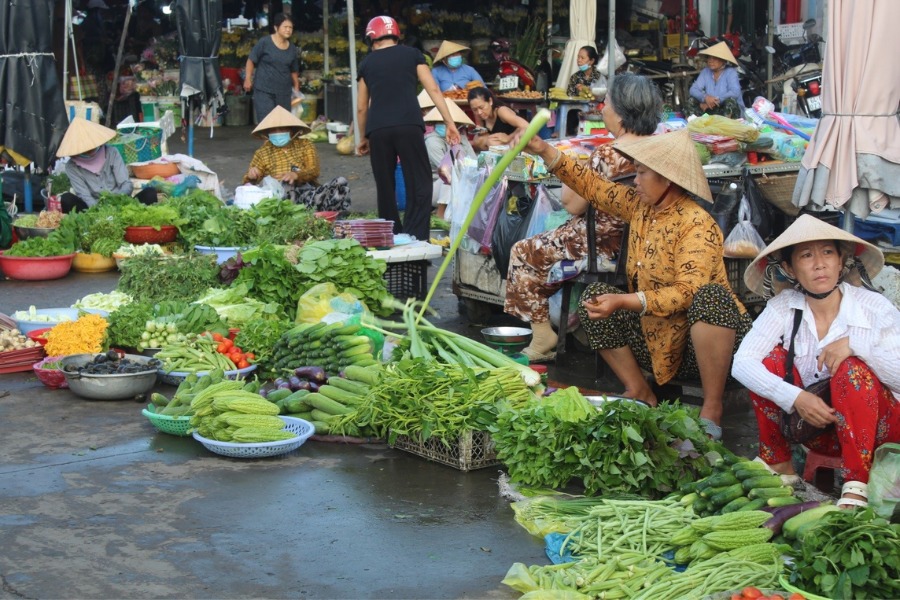

Sleeper buses are a common mode of transportation for long-distance travel within Vietnam and are, in my opinion, one of the best transportation methods available. Why? Because that not only is it affordable, but it’s also super convenient. To optimize traveling time during a vacation, locals prefer to get on a late-night sleeper bus where they can comfortably stretch out to sleep on a bunk bed (rather than sleep sitting up on a regular bus) then when they wake up the next morning, boom, they have already arrived at their destination.
Note that this is only in case of when you travel to nearby provinces – not like from south to north. You might find it strange, because you usually have a normal bus where you sit up and not where you can lay down, right? Believe me, once you try out one of these sleeper buses, you will absolutely love it.
Buying Groceries Daily

Those unfamiliar with Vietnam’s shopping culture might find the country’s routine grocery buying habit surprising. Every day, people go to local markets or small businesses to get fresh ingredients for their meals, which goes against traditional convenience and efficiency. However, the reason is that Vietnamese people place priority on using fresh ingredients and fruits for their meals, which necessitates regular visits to local markets.
Tracking Time by a Different Calendar
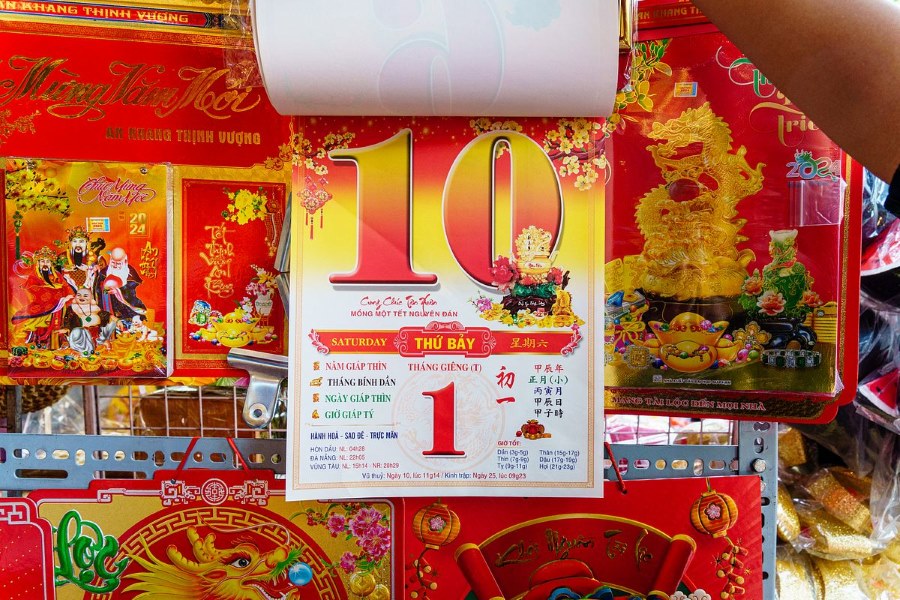
In Western cultures, people track time by following only the solar calendar, but in Vietnam, surprising to most tourists, we use two calendars: solar and lunar calendar. In normal day-to-day life, we use the solar calendar. However, if it’s a holiday, for example, Tet or the Lunar New Year, we will mark it by the lunar calendar. Some Buddhist followers use the lunar calendar to keep track of which days they eat vegetarian in a month (usually twice a month).
Foreigners Are the Center of Attention!
Vietnamese people, particularly in more rural or less populated areas, may be curious and interested in connecting with international tourists. This attention can often seem overwhelming or uncomfortable, especially if you are not used to being the center of attention. However, I can assure you that the attention you receive as a foreigner is genuine curiosity, typically accompanied by real warmth and hospitality from the Vietnamese people. So don’t be afraid if you are the center of attention, as Vietnamese people are very friendly and only want to connect with you.
Tattoos Are Still Taboo Here
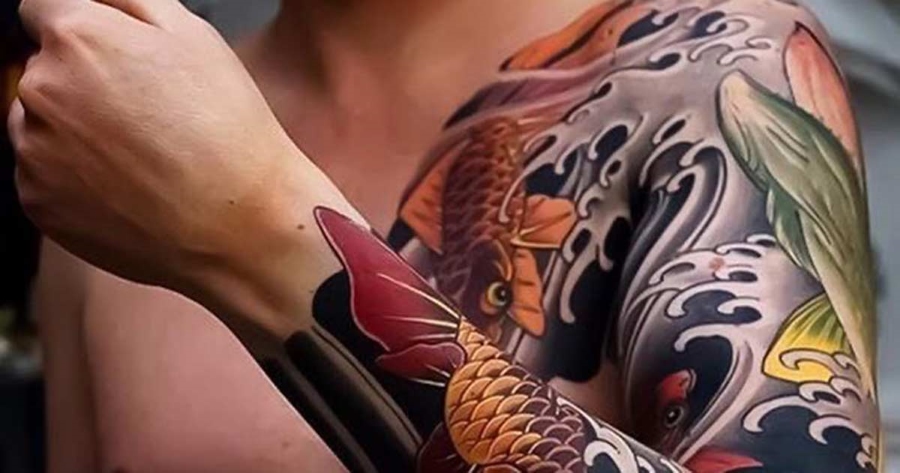
If you are a tourist visiting Vietnam and have visible tattoos, it is essential to understand that tattoos are still considered taboo among the older generations in Vietnamese culture. While opinions against tattoos have increasingly shifted in recent years as more youth today are getting tattoos, traditional values and conservative attitudes can remain prevalent in some regions across the country.
Tourists with visible tattoos in Vietnam may endure culture shock as a result of stares, criticism and restricted access to certain areas such as sacred places. So when visiting sacred places like temples or churches, it is best to cover up your tattoos before entering.
Toilet Paper or the Bum Gun?
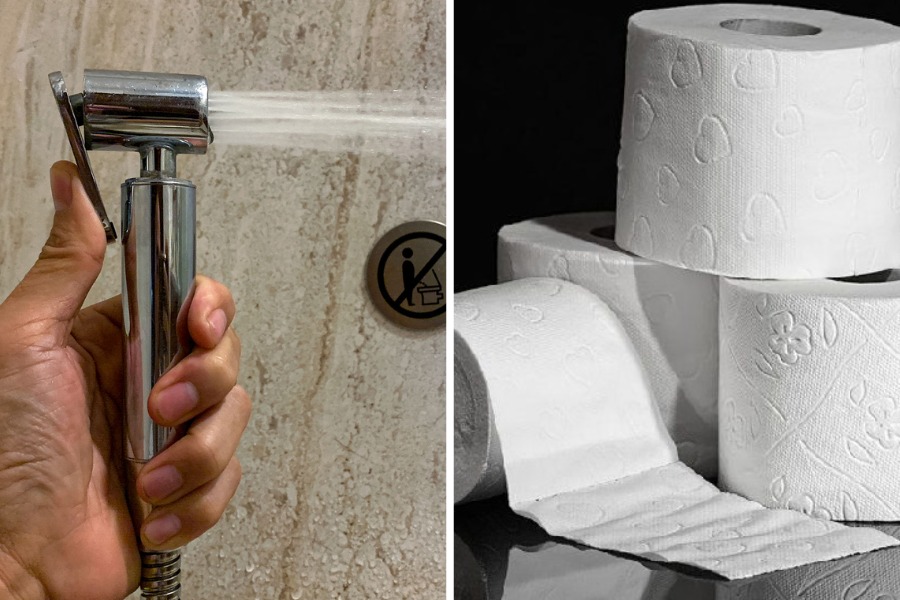
Tourists in Vietnam get surprised when they see the use of “bum guns” in place of toilet paper. In many regions of Vietnam, restrooms are outfitted with bidets or handheld sprayers known as “bum guns” as the primary technique of cleaning oneself after using the toilet. Many visitors may be startled to learn that toilet paper is not widely supplied in public facilities, let alone in certain hotels or accommodations. It is recommended that travelers bring their own toilet paper and tissues for personal use and remember not to flush it, put them in the bin instead.
Dog Meat Trade

Some tourists ask me, “Do you eat dog meat here?” In the past, travelers might have come across shops that sold dog meat in specific locations – notably in rural or local markets – which can be upsetting and contradict cultural standards and personal beliefs.
However, many Vietnamese people, particularly the younger generation, are now actively trying to eliminate the dog meat trade. Animal welfare organizations and activists are working to protect dogs, and major cities have begun to prohibit the sale of dog meat and are trying various methods to completely eradicate it.
Playing Drums and Blowing Trumpets at Funerals
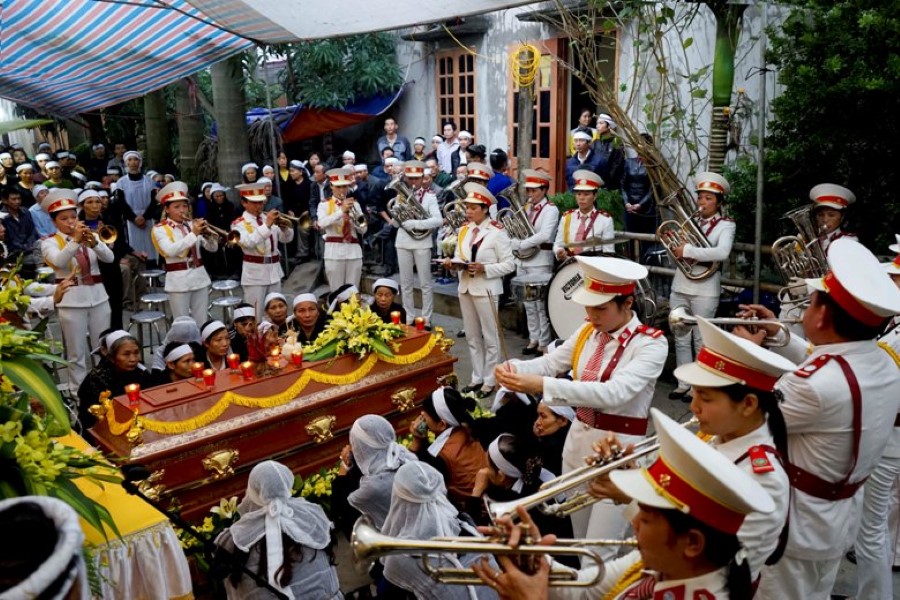
In Vietnam, the practice of playing drums and blowing trumpets at funerals is a common ritual, part of a tradition that believes it guides the deceased’s spirit to their ultimate resting place. The noise of it may be unexpected or be a culture shock for some tourists, but Vietnamese funerals are actually quite vibrant. They are intended to commemorate and celebrate the deceased’s life, rather than to be dismal or sorrowful.
Anything That Tourists Should Be Aware of and/or Prepare for in Advance?
When planning a vacation to Vietnam, there are a few things that travelers should be aware of in order to have a pleasant and culturally respectful experience. In this section, I’ll emphasize three critical aspects that you should consider: covering up in temples, mastering the art of haggling with a smile, and being acquainted with fundamental Vietnamese terms. Taking these precautions allows guests to immerse themselves in the beauty of Vietnam while displaying cultural awareness and making meaningful interactions with the locals.
Covering up in Temples
When visiting temples or religious sites in Vietnam, there are specific guidelines to follow to show respect and reverence. Here are the key points to keep in mind:
- Modest Clothing: It’s necessary to dress modestly when visiting temples or religious places in Vietnam. Both men and women should refrain from wearing exposing attire such as shorts, miniskirts, tank tops, or shirts that show shoulders or cleavage. It is advised that you wear clothes that cover your shoulders, knees, and stomach. For example, loose-fitting, comfortable clothing is perfectly acceptable.
- Removing Shoes: Removing shoes before entering temples or prayer locations is a widespread custom in Vietnamese culture. It represents leaving the outside world behind to enter a sacred space. Before entering, check for indicators or cues from others to decide whether shoes should be removed. For instance, if you see a shoe rack or see that others are removing their shoes, you should do the same.
- Speaking Softly: Temples and religious sites are places of peace and reflection. Speaking gently is vital for maintaining a serene atmosphere and respecting the spiritual essence of the venue. Refrain from engaging in loud conversations, screaming, or any disruptive behavior. Instead, maintain a calm and peaceful demeanor, speaking quietly when necessary.
Note: If you’re unsure about particular customs or practices, just observe the people around you and follow their lead. Pay attention to how natives dress, remove their shoes, and behave in these sacred locations. By doing so, you demonstrate cultural understanding and contribute to a peaceful environment.
When in Doubt, Bargain With a Smile
One time, a tourist told me a story about her first bargain. She is an American and had never bargained before. When she arrived in Vietnam, she asked the hotel staff where she could buy souvenirs. They told her to go to Ben Thanh market and reminded her to bargain. Not having any prior knowledge or experience in bargaining, she asked the staff for their advice.
She then proceeded to the market and approached a seller who drew her attention. With a smile on her face, she decided to try her luck at negotiating. But of course, it was her first time bargaining, and she forgot most of the tips that the staff taught her. She tried using body language to recommend a lesser price, while still keeping a friendly smile on her face. To her delight, the merchant responded with a counter-offer that was somewhat more than her preferred price, but still acceptable. She took that as a win for her first time bargaining, and she was so happy that even though she couldn’t communicate very well, her smile at least still helped her get a lower price.
In the end, she recognized that when in doubt, negotiating with a smile was essential in Vietnam’s markets. She negotiated with suppliers, expressing enthusiasm for their products, while remaining polite and friendly. The smiles bridged the divide, resulting in fair agreements and unforgettable encounters. Her experiences taught her the value of a smile in navigating the art of bargaining, developing strong relationships, and leaving a lasting impression. Even though smiling is a strong negotiation tool, you should consider knowing a few bargaining tips and learning some Vietnamese phrases that will definitely boost your negotiation and communication skills to the next level.
Read more tips in our guide: The Culture Of Bargaining In Vietnam: A Comprehensive Guide
Basic Vietnamese Phrases
As I mentioned above, learning some Vietnamese phrases that you can utilize during your visit to Vietnam will certainly help you improve your communication with the locals, and help you to have a better knowledge of the culture. Here are some simple Vietnamese phrases that you can learn in a few minutes:
- Xin chào (Sin chow) – Hello
- Tạm biệt (Tam by – et) – Goodbye
- Cảm ơn (Gam ern) – Thank you
- Làm ơn (Lam ern) – Please
- Xin lỗi (Sin loy) – Excuse me/Sorry
- Dạ (Yah) – Yes (when you talk with someone older to show respect)
- Có (Gorr) – Yes
- Không (comb) – No
- Bạn khoẻ không? (ban kwen kong) – How are you?
- Rất vui được gặp bạn (Rut vui dook gap ban) – Nice to meet you
- Tôi tên là…(toi ten la…) – My name is…
- Ngon quá! (Gone qwa) – Delicious!
- Một, Hai, Ba, Dzô! (Muht hi bah zoh) – 1, 2, 3, Cheers!
- Đẹp quá! (Depth qwa) – So beautiful! (Can use for object)
- Đáng yêu (Dang ew) – Cute (Can be for person or object)
- Bạn nói tiếng Anh giỏi quá (Ban noy teeng anh zoy qwa) – Your English is really good
- Bạn rất thông minh (Ban rut thong mink) – You are very smart
- Bạn có nụ cười đẹp (Ban gorr nude coin depth) – You have a pretty smile
I hope this little guide covering some things you should know about Vietnamese Culture has given you a glimpse into the beautiful mosaic that is my home country. It’s a world of warm smiles, delicious food, rich traditions, and yes, even a little organized chaos. As you embark on your adventure in Vietnam, I hope this guide helps you navigate the unique customs and traditions you’ll encounter. Remember to embrace the differences, open your heart to new experiences, and always approach every interaction with a smile.
I can’t wait to welcome you to my beautiful country!



